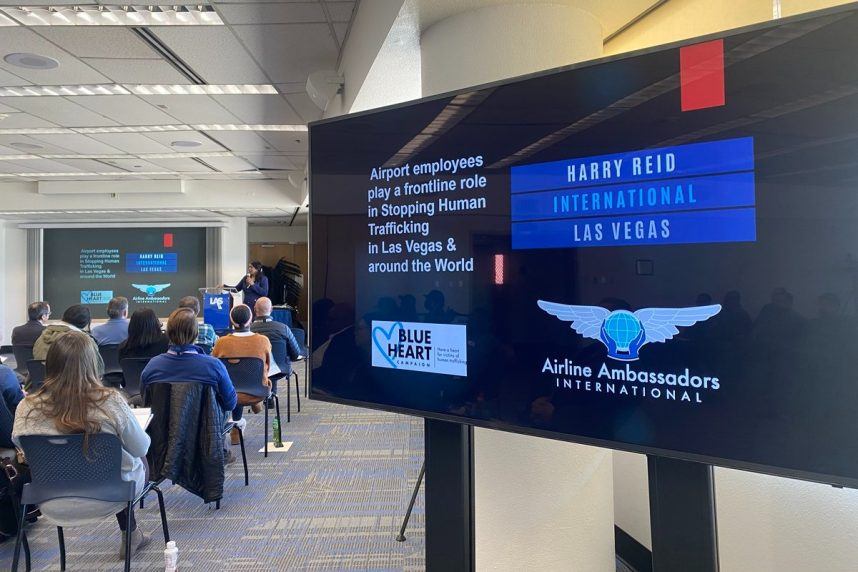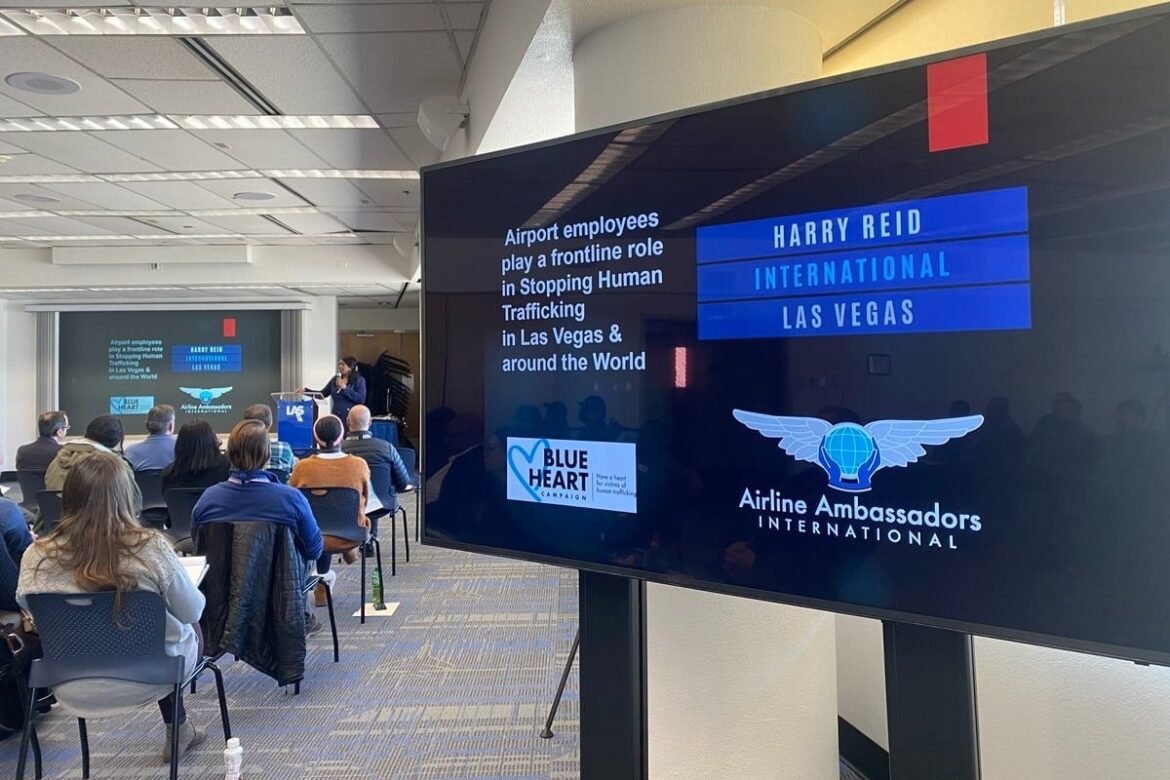Posted on: July 10, 2024, 04:45h.
Last updated on: July 10, 2024, 04:45h.
The American Gaming Association (AGA), the leading trade group in Washington, D.C., representing the interests of commercial and tribal casinos across the United States, is supporting federal legislation that seeks to increase human trafficking awareness through education.

Congressmen David Valadao (R-California) and Troy Carter (D-Louisiana) this week introduced the “Human Trafficking Awareness Training Recognition Act.” The federal bill seeks to expand the Department of Homeland Security’s Blue Campaign to establish an annual certificate program that employers can use to help train employees in human trafficking cognizance.
Employers that provide and complete the annual educational program with their employees will be given a certificate of completion from the U.S. agency that they can display for one year.
“This bipartisan bill recognizes employers who are trained to identify and respond to signs of human trafficking, harnessing the power of industries such as entertainment, hospitality, and transportation, where staff are often the first to spot potential trafficking scenarios,” said Carter. “This initiative honors the commitment of businesses actively working to combat these crimes and encourages more companies to join the cause. We must do everything in our power to prevent the sale and transportation of human lives.”
The Blue Campaign is the DHS’ national public awareness campaign designed to educate the public, law enforcement, and other industries on how to recognize the indicators of human trafficking and how to appropriately respond.
The AGA in June 2020 deployed its first-ever Anti-Human Trafficking Task Force to increase education, empowerment, and prevention of trafficking at commercial and tribal casinos. The task force worked with the DHS and U.S. Treasury and Justice departments to better educate casino workers and patrons.
Gaming Workers on Trafficking Frontlines
Valadao and Carter’s bill seeks to create a system to honor companies that are diligently working to reduce human trafficking. The AGA is fully supportive of the initiative.
Businesses across hospitality, entertainment, and transportation have a responsibility to bolster the front lines in the fight against human trafficking and the gaming industry is wholly committed to this imperative,” said AGA President and CEO Bill Miller. “The AGA thanks Reps. Valadao and Carter for their commitment to combating this detestable crime and for recognizing businesses that share this commitment.”
The lawmakers believe initiating a certificate program will incentivize employers to participate in the DHS Blue Campaign program. While the Blue Campaign offers tools to help combat trafficking, it currently lacks an initiative for recognizing businesses that have trained employees on how to detect and respond to suspected human trafficking.
By the Numbers
Human trafficking, the DHS explains, involves the use of force, fraud, or coercion to obtain free labor or sexual acts. It’s estimated that millions of men, women, and children are trafficked worldwide each year.
Traffickers often target people who are psychologically or emotionally vulnerable, facing economic hardship, or lack a support system. DHS officials say many victims suffer so much trauma that they might not identify themselves as a victim or seek help even when in highly public settings like casinos.
Casinos have long been considered prime exchanges for traffickers, as the gaming floors can be used to launder dirty money received in exchange for a trafficked person. Casinos are also frequented by sex workers who were forced into the industry by their handlers.
DHS arrested more than 2,500 individuals last year on human trafficking allegations and offenses and rescued over 700 trafficked persons. Police in Las Vegas in recent months have also ramped up their arresting of suspected prostitutes and their clients.
The AGA in January teamed up with RG24seven to launch a virtual training program made free to casino companies and their employees. Those who complete the course receive a certificate of completion.

